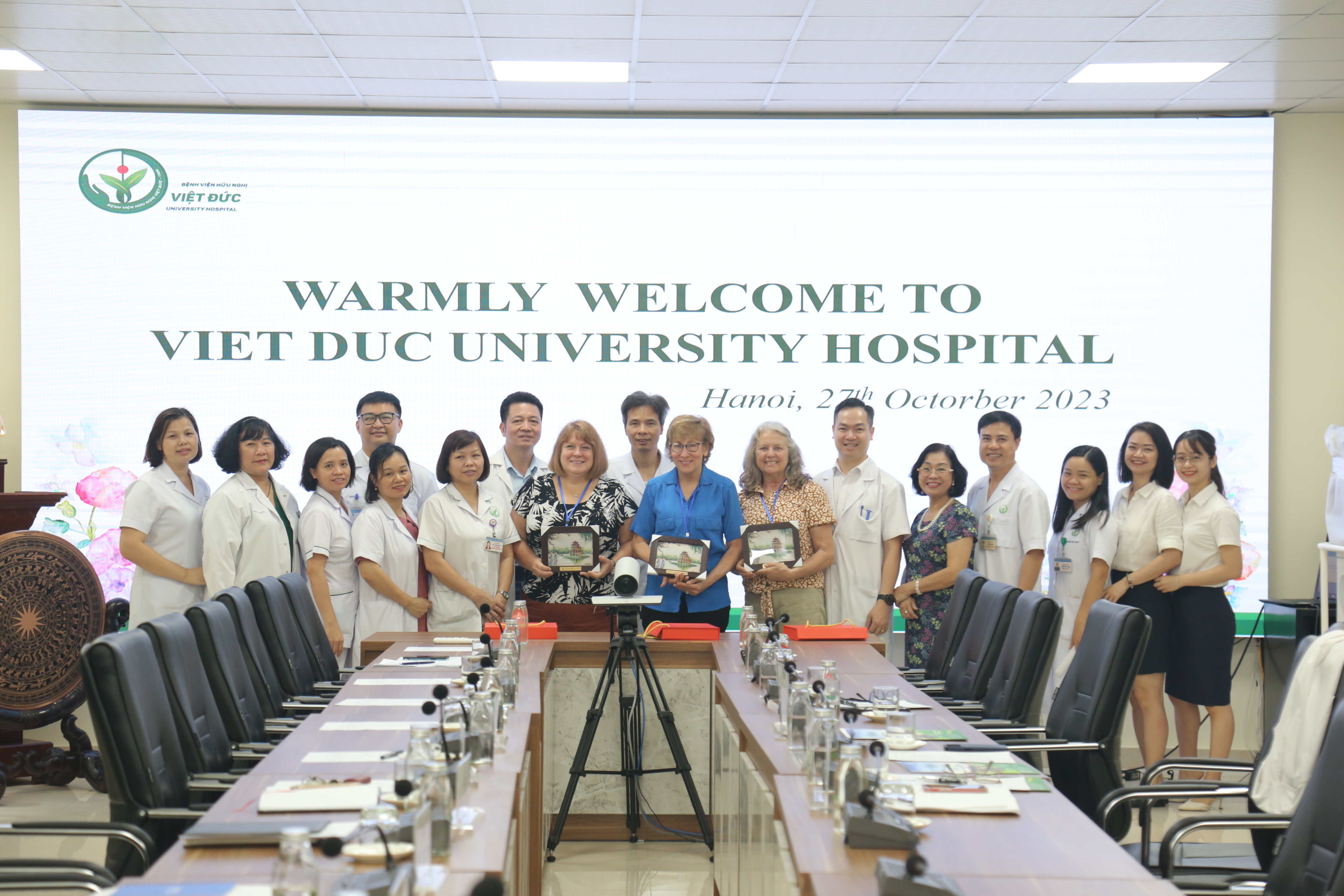Improving the treatment quality by promoting the nutrtional care activities
11/10/2019 13:55
Over recent years, Viet Duc University Hospital has collaborated with Abbott Company to implement successfully the project “Improving the treatment quality by promoting nutritional care activities” with many positive results in screening and evaluating malnutrition status among inpatients, in helping to raise the awareness of physicians, nurses and in improving the quality of medical services.
In order to share experience, to update new knowledge about clinical nutrition, on 24th September 2019, Viet Duc University Hospital in collaboration with Abbott Company organized the seminar “Guidelines in nutritional intervention for severe patients: From theory to practice”. The participants from Viet Duc University Hospital, included Prof. TRAN Binh Giang – Director of the hospital, Ass. Prof. TRINH Van Dong – Deputy director of Center of anesthesia and surgical intensive care (CASIC), Dr. LUU Quang Thuy – Deputy director of CASIC, Dr. DO Tat Thanh – Head of Nutrition Department and all leaders, chief nurses from institutes, centers and departments of Viet Duc University hospital. Representatives of nutrition departments from regional hospitals of Hanoi also were invited to join the seminar.
From Abbott Company’s side, Mr. TRAN Duy Giao – Key Customer Manager in Northern and Central Regions.
Giving the opening remarks, Prof. TRAN Binh Giang emphasized the role of nutrition in treatment and rehabilitation for patients, especially in post-operative period. In the past, nutrition’s role wasn’t properly concerned. In most hospitals, nutritional issues were completely pushed toward patients’ family while nutritional interventions could be an essential and effective care.
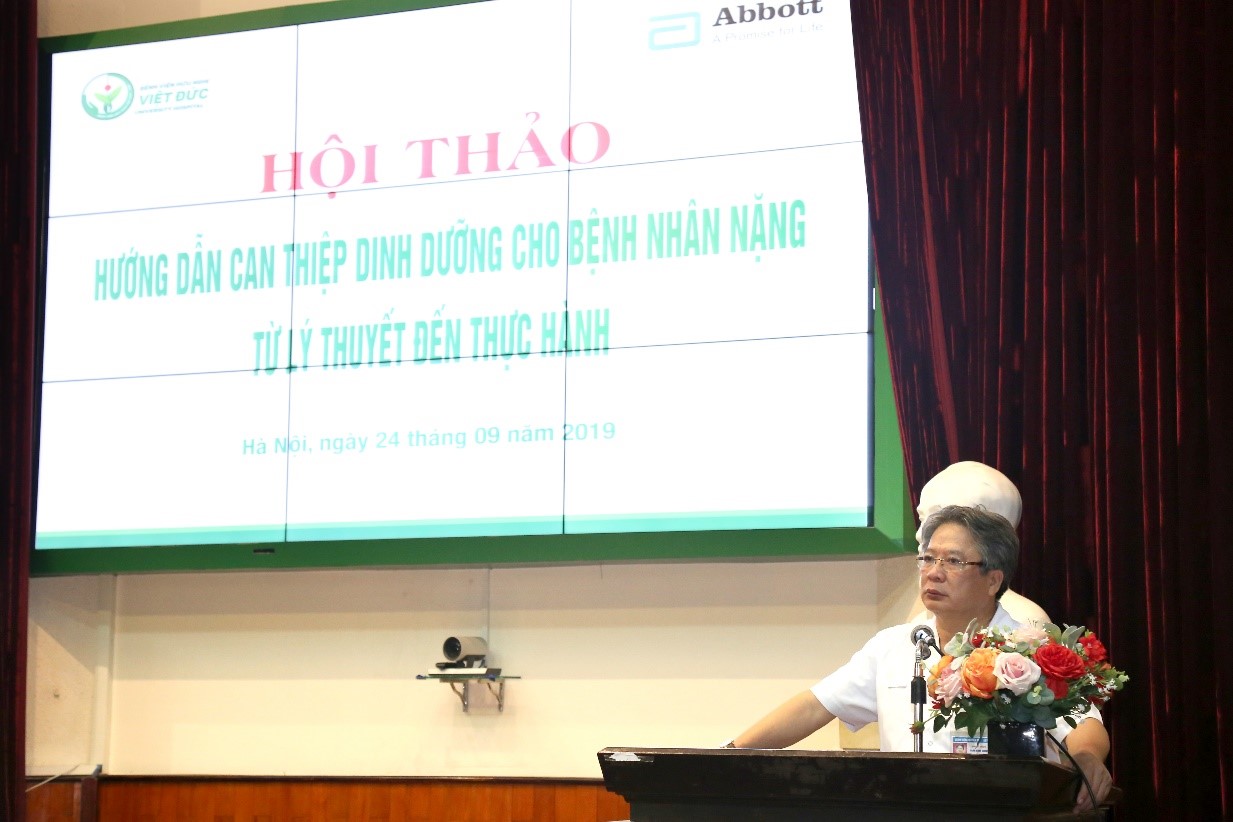
Opening remarks from Prof. TRAN Binh Giang – Director of Viet Duc University Hospital
Ass. Prof. TRINH Van Dong – Deputy Director of CASIC shared his opinions about the role of enteral nutrition for severe patients such as providing essential nutrients like proteins, energy that could help to protect vital functions of human organs and to reduce the loss of skeleto-muscular masses, to provide essential substances to repair and recover wounds and lesions, to maintain functional integrity of gastrointestinal mucous, to promote the response of the body against stress and to improve as well as to limit the sequelae.

Sharing from Ass. Prof. TRINH Van Dong – Deputy Director of CASIC about the role of enteral nutrition for severe patients
Dr. LUU Quang Thuy – Deputy Director of CASIC shared at the seminar some skills about nutritional interventions from severe patients without proper digestive tolerance. Among them, the principle of nutritional care for patients with major surgical intervention is that: Never let patient undergo the elective surgery without malnutrition screening. Post-operative nutrition could help to reduce the hospital length stay, morbidity and mortality rates and to recover the digestive function soon. The objective of enteral nutrition is to provide essential nutrients for the gastrointestinal tract to regulate the pathological process as well as to get back the bowel protective barrier. Peristalsis might be back in 6 – 8 hours after surgery and even without normal motility, the absorption capacity of the gastrointestinal tract is still maintained.
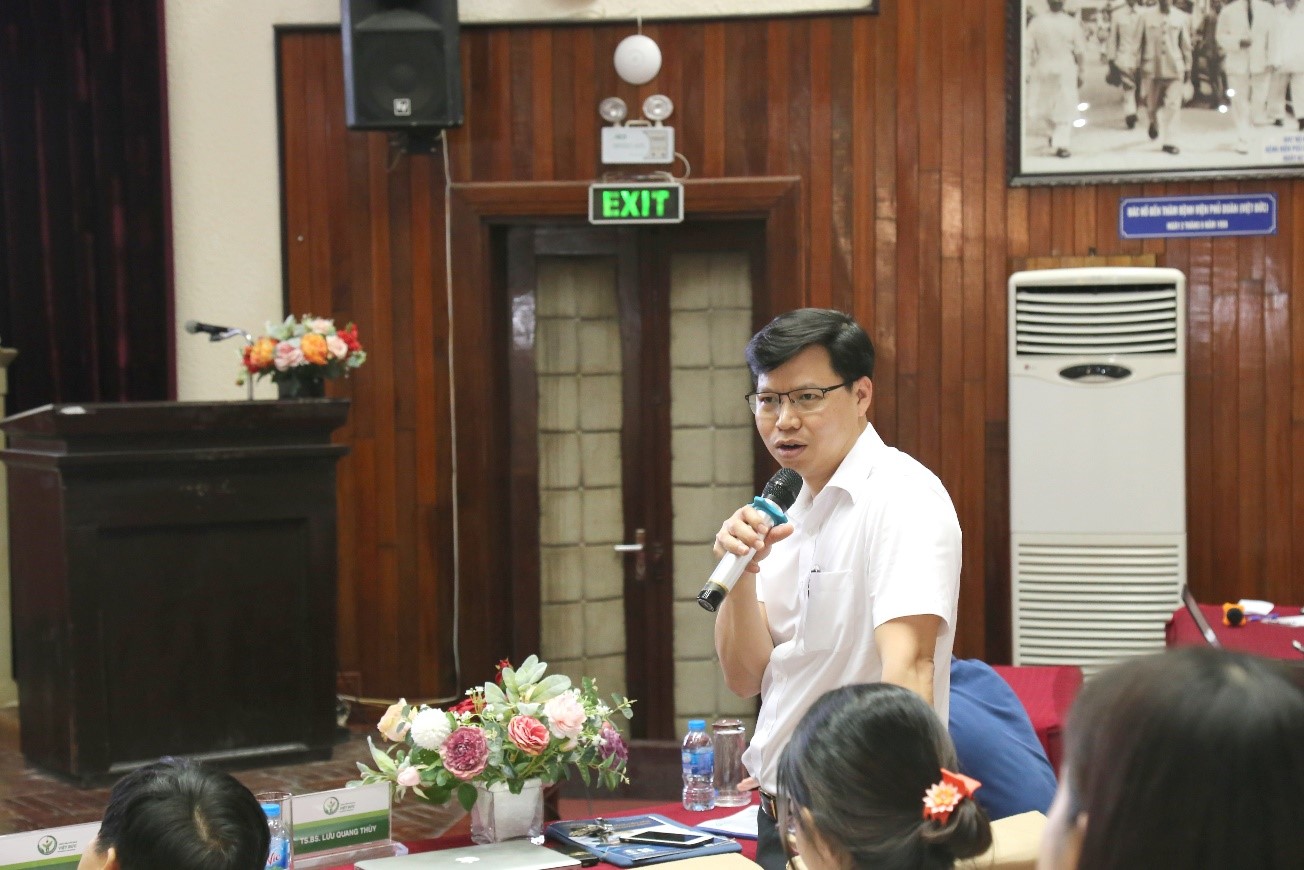
Dr. LUU Quang Thuy – Deputy Director of CASIC with nutritional intervention skills for severe patients
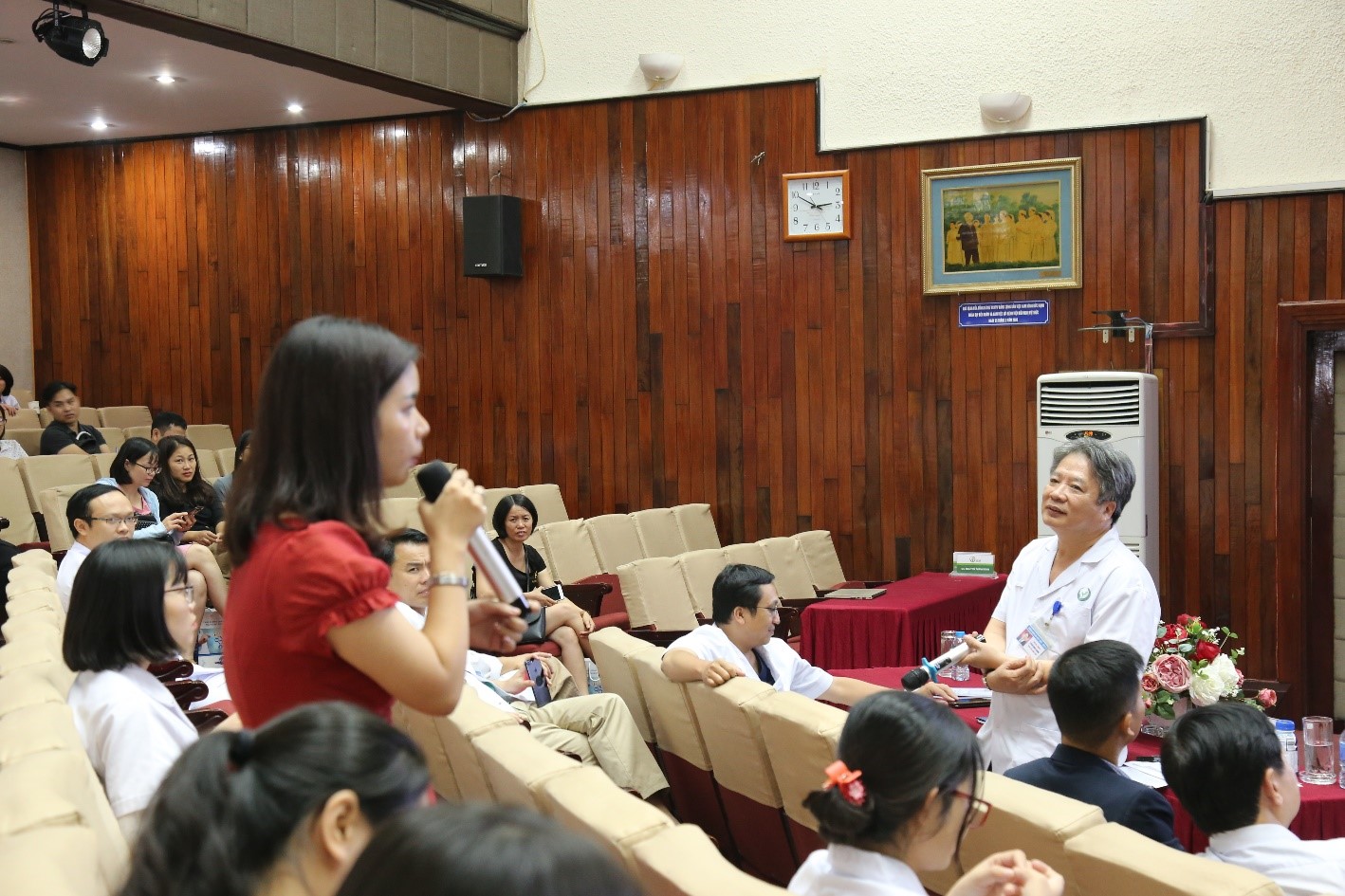
Questions from participants
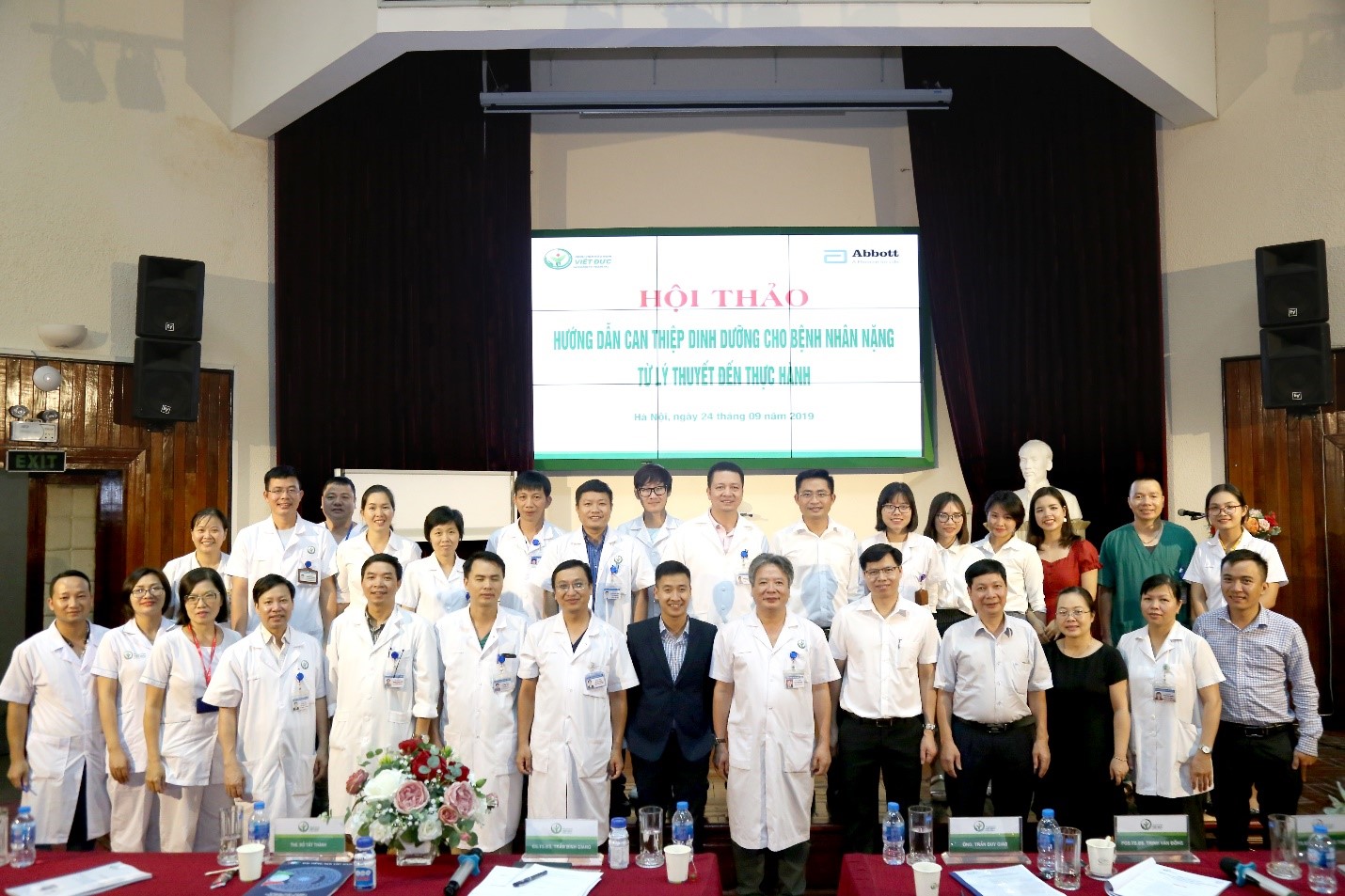
Seminar “Guidelines in nutritional intervention for severe patients: From theory to practice” was held successfully
Social Work Department







